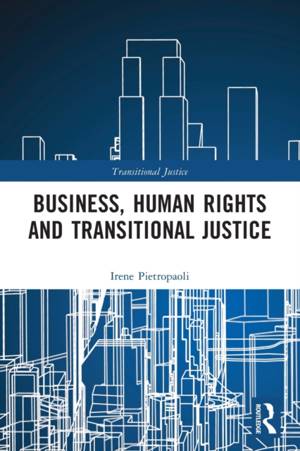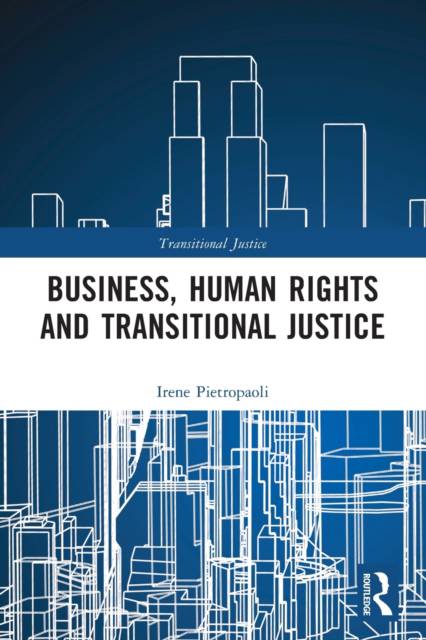
- Afhalen na 1 uur in een winkel met voorraad
- Gratis thuislevering in België vanaf € 30
- Ruim aanbod met 7 miljoen producten
- Afhalen na 1 uur in een winkel met voorraad
- Gratis thuislevering in België vanaf € 30
- Ruim aanbod met 7 miljoen producten
Omschrijving
This book considers the efficacy of transitional justice mechanisms in response to corporate human rights abuses.
Corporations and other business enterprises often operate in countries affected by conflict or repressive regimes. As such, they may become involved in human rights violations and crimes under international law ‒ either as the main perpetrators or as accomplices by aiding and abetting government actors. Transitional justice mechanisms, such as trials, truth commissions, and reparations, have usually focused on abuses by state authorities or by non-state actors directly connected to the state, such as paramilitary groups. Innovative transitional justice mechanisms have, however, now started to address corporate accountability for human rights abuses and crimes under international law and have attempted to provide redress for victims. This book analyzes this development, assessing how transitional justice can provide remedies for corporate human rights abuses and crimes under international law. Canvassing a broad range of literature relating to international criminal law mechanisms, regional human rights systems, domestic courts, truth and reconciliation commissions, and land restitution programmes, this book evaluates the limitations and potential of each mechanism. Acknowledging the limited extent to which transitional justice has been able to effectively tackle the role of corporations in human rights violations and international crimes, this book nevertheless points the way towards greater engagement with corporate accountability as part of transitional justice.
A valuable contribution to the literature on transitional justice and on business and human rights, this book will appeal to scholars, researchers and PhD students in these areas, as well as lawyers and other practitioners working on corporate accountability and transitional justice.
Specificaties
Betrokkenen
- Auteur(s):
- Uitgeverij:
Inhoud
- Aantal bladzijden:
- 286
- Taal:
- Engels
- Reeks:
Eigenschappen
- Productcode (EAN):
- 9780367496388
- Verschijningsdatum:
- 1/02/2022
- Uitvoering:
- Paperback
- Formaat:
- Trade paperback (VS)
- Afmetingen:
- 156 mm x 234 mm
- Gewicht:
- 408 g

Alleen bij Standaard Boekhandel
Beoordelingen
We publiceren alleen reviews die voldoen aan de voorwaarden voor reviews. Bekijk onze voorwaarden voor reviews.











